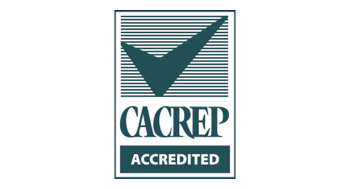Make An Impact
Gain prevention, intervention, and key clinical skills for effective and ethical counseling practice. Our time-tested curriculum includes comprehensive hands-on training, field experience, and faculty mentorship. This Adlerian-focused CACREP-accredited program promotes social interest, advocacy, and harmony within you and your practice.
Powerful Integrated Curriculum
Discover a flexible path to becoming a licensed mental health counselor. Our 60-credit master’s program features expert-led coursework, internship experience, and an electronic portfolio that showcases all you’ve learned.
Find Your Mentor
The diverse faculty is the foundation of the Adler Graduate School learning experience. Our faculty are:
- passionate educators with online teaching expertise
- long-time mental health professionals with an array of clinical, leadership, and research experience
- dedicated to supporting your success
Click here to learn more about our faculty.
Licensure Information
Our program meets the educational requirements for the licensed professional clinical counselor (LPCC) credential in MN. We will help you determine if we meet the licensure requirements in your state. You can also learn more here: Contact the state licensure board here.
The Master of Arts in Counseling, Clinical Mental Health Counseling program is accredited by the Council for Accreditation of Counseling and Related Education Programs (CACREP).

Spotlight
Learn more about our faculty, students, and alumni.
Your Future
At Adler Graduate School, you’ll experience professional growth and personal transformation. Our graduates build successful and meaningful careers with lifelong support from AGS.
A Day In the Life
Counselors provide services and guidance to individuals and groups of all ages. They do this in person, virtually, and in a wide variety of clinical and community settings. They also collaborate with other mental health professionals on treatment, research, and advocacy.
Professional Settings
- Private practice
- Inpatient and outpatient hospital settings
- Hospice care centers
- Social services
- Educational settings
- Religious organizations
- Corporate environments
- Community health centers
- Treatment centers
Required Courses
Please refer to our course catalog for the most up-to-date course requirements.
Program Outcomes
All Master of Arts Degree in counseling students graduate with the key skills of a clinical mental health counselor:
- Social Justice and Advocacy: Demonstrate the knowledge, skills, and practices to deliver culturally appropriate counseling services, advocate for clients, and understand how to influence policy to enhance the practice of clinical mental health counseling.
- Professional Identity: Show a commitment to their identity as counselors through membership and activities in professional organizations, and through ethical behavior in their work with clients and other professionals.
- Counseling, Prevention, and Intervention: Demonstrate the knowledge, skills, and theory-based practices of culturally appropriate diagnosis, treatment, referral, and prevention of mental and emotional disorders.
- Assessment and Diagnosis: Demonstrate the knowledge, skills, and practices of culturally appropriate and holistic clinical assessment and diagnosis of both psychopathology and normal developmental challenges, including appropriate use of diagnosis during trauma-causing events.
- Ethical Decision-Making: Demonstrate competent use of ethical frameworks and methods to make ethical decisions across clinical care settings.
- Research and Evaluation: Competently and critically evaluate clinical mental health counseling research, demonstrate understanding of evidence-based treatments and outcome evaluation, and apply appropriate models of program evaluation.


